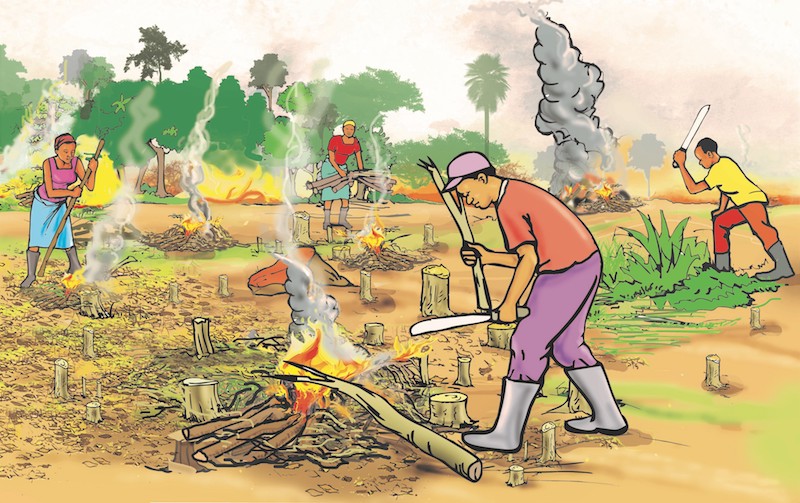
Smallholder farmers depend on rainfall to irrigate and sustain agricultural practices. These activities are essential for communities to thrive. However, for many, farming is becoming more difficult due to prolonged dry spells and erratic rainfall. These conditions makes it difficult for farmers to predict the onset of the rainy season and make agriculture an unprofitable investment.
The Challenges Facing Smallholder Farmers
In addition, factors such heat stress, lack of water and pests and diseases are becoming increasingly aggravated. As a result of climate change, all of these factors interact with ongoing pressures on land, soil and water resources.
Madam Yaa Kyeremeh, an 80-year grandmother in Krabonso, a farming community in Ghana’s Brong Ahafo Region says:
“The forests are gone, and so too has the beautiful climate that brought so much rain. There are food shortages and no one can plant cocoa here anymore. Rivers which once served the community all year round have dried up.”
Increased Dependence on The Natural Environment
As a response to these challenges, rural communities are increasing their dependence on the natural environment. This means engaging in illegal timber harvesting and expanding into forest reserves. These practices are highly unsustainable and further aggravate the climate-risk of local communities.
Integration of Climate-smart Initiatives
Solidaridad is responding to this crisis by integrating climate-smart initiatives across a range of supply chains. This is being done in partnership with public and private stakeholders to promote good agricultural practices and ecosystem restoration.
The Ghana Dedicated Grant Mechanism Project
Since May 2017, Solidaridad has led a participatory approach to implementing the Ghana Dedicated Grant Mechanism project. This project is aimed at fighting forest loss, halt unsustainable land use practices and improve livelihoods by strengthening local community knowledge and practices on climate-smart, sustainable practices. This approach places local communities at the helm of decision-making and generate effective responses to help them adapt to climate impacts.
The Link Between Land Use & Protecting the Planet
Once rural communities are able to understand the link between climate change and land use practices, they are more likely to put measures in place to ensure that climate response interventions can achieve scale. Ultimately, this ensures that scarce resources made available to improve community livelihoods and protect the environment are effectively applied.
“We are hopeful that soon we will see changes in the landscape as we are determined to apply the knowledge we have acquired under the Dedicated Grant Mechanism project."
The Ghana-Dedicated Grant Mechanism project is aimed at benefiting at least 11,000 rural people who are undertaking climate-smart and innovative interventions in the country.
On this day, we celebrate these and other farmers who are taking proper action for the protection of the environment.
Learn more about Solidaridad's programmes here.
